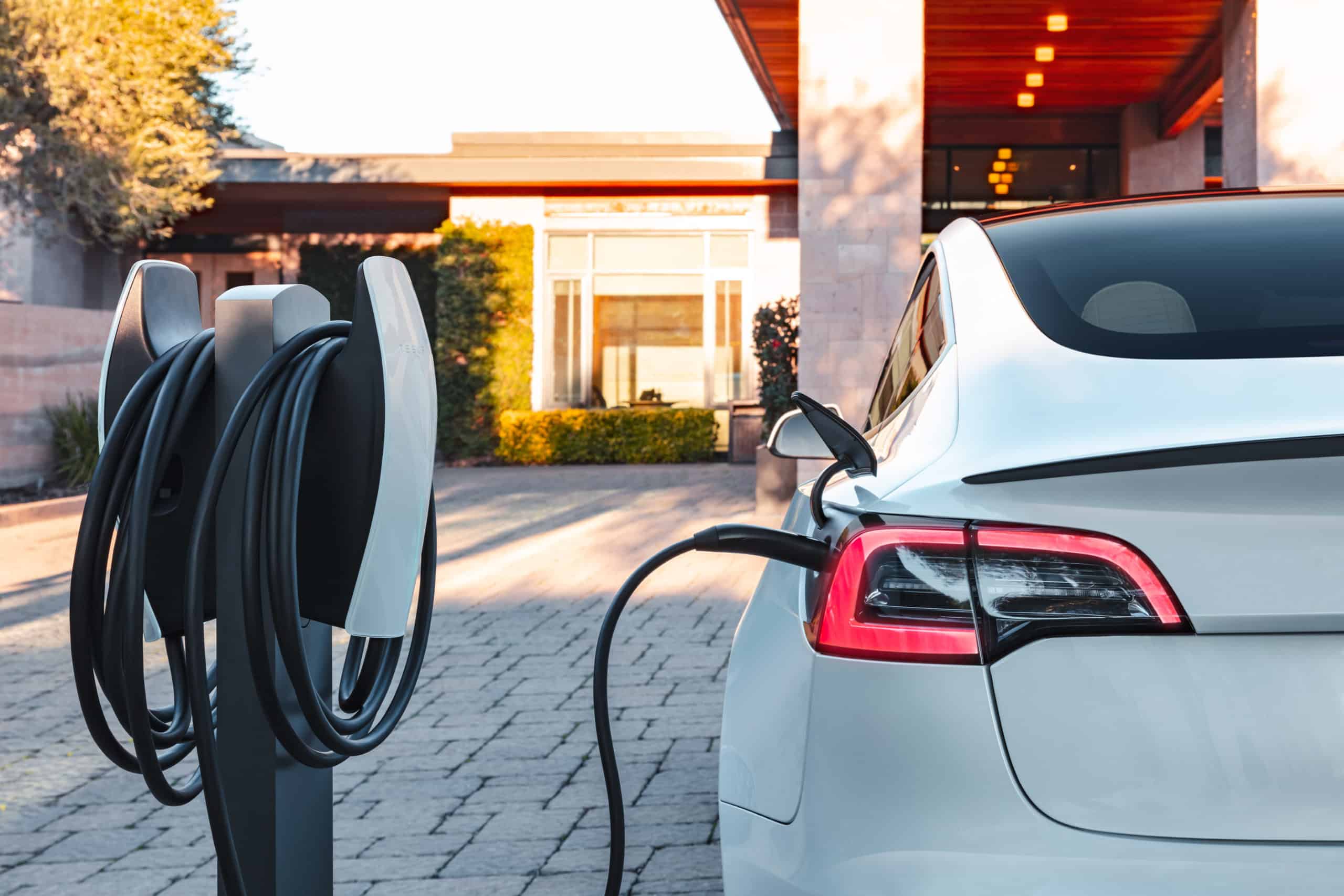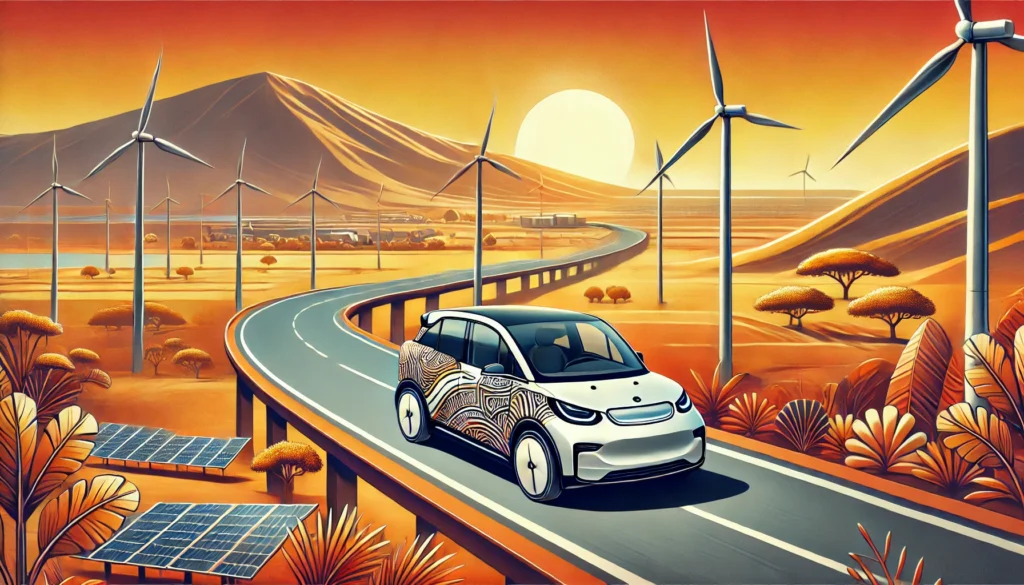Across Africa, a green mobility revolution is gaining momentum, driven by rising fuel costs, a demand for affordable transportation, and growing environmental concerns. However, the prohibitive cost of electric vehicles (EVs) and insufficient infrastructure raise critical questions about whether electric vehicle adoption in Africa can truly flourish on the continent.
Globally, efforts to decarbonize road transport, which contributes 15% of global emissions, are underway. Africa is no exception, with governments and private players striving to capture a share of the rapidly growing EV market, which is projected to reach USD 21.39 billion by 2027, up from USD 11.94 billion in 2021. This rapid growth brings both opportunities and challenges for electric vehicle adoption in Africa.
The EV Race in Africa
Several African nations are leading the charge in transitioning to electric vehicles. Rwanda, for example, has implemented a series of policy measures to attract investors, including rent-free land for charging stations, reduced electricity tariffs for EVs, and exemptions from VAT, import, and excise duties for electric cars and spare parts.
Tunisia has cut custom duties on EV charging equipment to 10% and reduced VAT to 7%, while Uganda, which produced Africa’s first electric bus in 2016, has waived import duties on electric two- and three-wheelers and exempted all EVs from VAT. The country has also introduced special electricity tariffs for charging stations, signaling its commitment to green mobility and supporting electric vehicle adoption in Africa.
Meanwhile, Kenya has emerged as a hub for electric mobility innovation, with 40 local startups raising USD 52 million in financing—the highest on the continent.
Startups Driving the EV Revolution
African startups are pivotal in this transformation, offering services such as local assembly, asset financing, and battery-as-a-service, which are crucial for advancing electric vehicle adoption in Africa.
BasiGo, a Kenyan green mobility startup, launched in 2022 with two electric mass transit buses and has since expanded its fleet to 17. These buses have collectively traveled over a million kilometers, carried over 1.3 million passengers, and prevented the emission of over 200 tonnes of carbon dioxide, highlighting the potential of electric vehicle adoption in Africa.
“Kenya, and by extension Africa, is ready for the green mobility revolution,” said Moses Nderitu, Chief Revenue Officer at BasiGo. “We initially thought the excitement was due to the novelty of electric buses, but two years later, enthusiasm remains high, with a waiting list of 400 buses from operators.”
Similarly, SolarTaxi, a Ghana-based startup, assembles and maintains electric vehicles, including cars, bikes, and tricycles. Since 2018, SolarTaxi has expanded its services to include charging unit installations, battery pack manufacturing, and bike conversions. The company’s social impact initiatives further contribute to electric vehicle adoption in Africa.
“We are committed to contributing to a clean and healthy environment through sustainable transportation,” said Jorge Appiah, CEO of SolarTaxi. The company now operates seven branches in Ghana and has extended its reach to Nigeria and Cote d’Ivoire to meet the growing demand for electric vehicle adoption in Africa.

Challenges on the Road Ahead
Despite the optimism, the road to widespread electric vehicle adoption in Africa has been bumpy. The high upfront costs of electric vehicles and the lack of adequate charging infrastructure have limited their appeal to many consumers. According to a report by the Shell Foundation, an estimated USD 9 billion will be needed by 2030 to establish a sustainable EV market in countries like Kenya, Nigeria, Uganda, Rwanda, and Ethiopia, further complicating electric vehicle adoption in Africa.
One of the biggest hurdles to electric vehicle adoption in Africa is financing. “Electric two-wheeler assemblers and importers struggle to scale up due to the high upfront payments required,” the report stated.
To address this, companies like BasiGo have introduced innovative financing models, such as a “pay as you drive” system, allowing bus operators to pay for electric buses based on kilometers driven rather than the total cost upfront. Another option lets operators purchase buses without batteries, significantly reducing the initial cost. SolarTaxi has also introduced affordable solutions, including renting electric bikes and a lease-to-own option for electric cars.
To further reduce costs, industry players have suggested tapping into carbon markets. “If we can monetize the carbon savings from using renewable energy in public transport, it will make green mobility more attractive, especially in countries like Kenya, where 60% of journeys are made by public vehicles,” said Nderitu.
Infrastructure remains another significant challenge to electric vehicle adoption in Africa, with insufficient power supply, frequent outages, and limited charging stations impeding the expansion of e-mobility. To address this, BasiGo is collaborating with public utility companies to increase the availability of charging stations and to charge vehicles during off-peak hours.
Public hesitancy, driven by a lack of awareness and concerns about the impact of EVs on the traditional automotive sector, has also slowed the pace of electric vehicle adoption in Africa. “The electric vehicle sector is an alternative, not a replacement for diesel-powered vehicles,” Nderitu explained. “Transitioning to green mobility is inevitable, much like how computers replaced paperwork. The benefits in job creation, environmental protection, public health, and urbanization are undeniable.”
Appiah from SolarTaxi echoed this sentiment: “We see the electric vehicle industry as an opportunity for innovation and growth, not a threat. Sustainable practices are the future, and the automotive industry can evolve by embracing these changes.”
Is the Future Green Mobility?
As countries strive to reduce emissions by 2030 and achieve net-zero status by 2050, electric vehicles are becoming crucial in that effort. Yet, the path to widespread electric vehicle adoption in Africa is fraught with challenges, from policy and legislative hurdles to commercial barriers.
“Transitioning to green mobility is critical to giving the planet a fighting chance in the battle against climate change,” Nderitu said. “If we can reduce emissions globally through electric vehicles and other clean transport technologies, it will be a step in the right direction.”
Subscribe to our newsletter:





